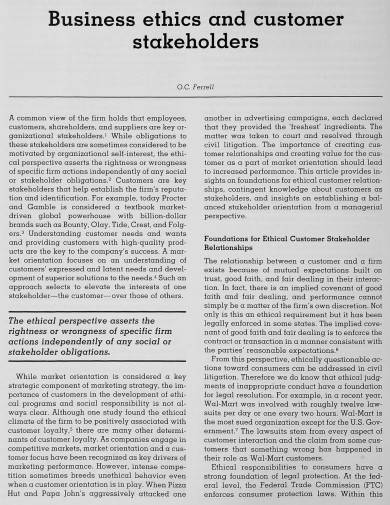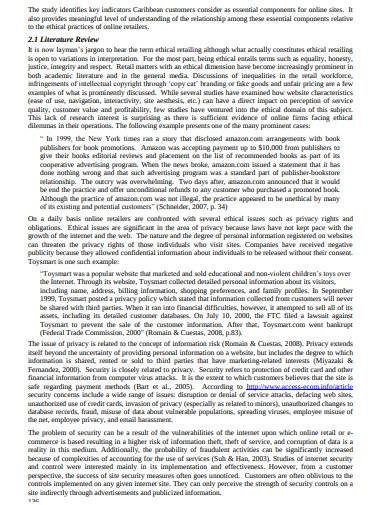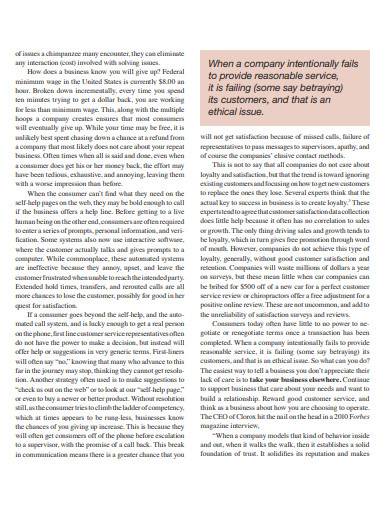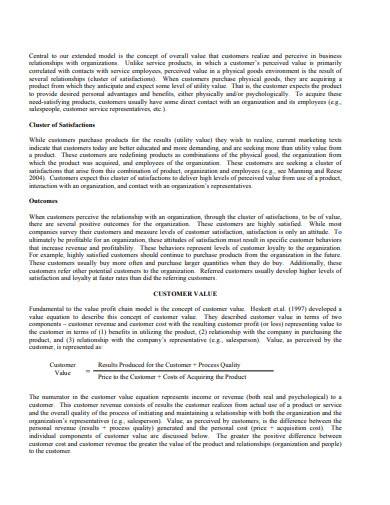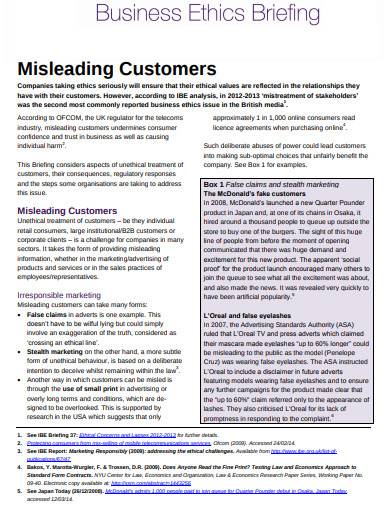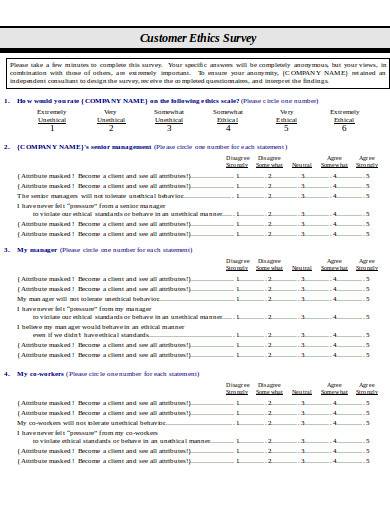From laws and constitutions to unspoken rules of transaction, corporations revolves around the horizontal axis of business ethics. However, the principles of entrepreneurship aren’t exclusively a code of “Honor among thieves,” per se, but also apply to customer treatment. With that said, promoting customer ethics through quality service and reliable products boosts your brand’s authenticity in the eyes of the public.
What are Customer Ethics?
Most people like to think that customer ethics equates with “The customer is always right,” but this isn’t always the case. While the phrase does hold some merit, it’s only a piece of a larger pie filled with customer analyses, trustworthy advertising, and quality surveys. As such, customer ethics are shaped by various aspects of excellent service, effective marketing strategies, and promoting a brand through patrons.
Now a thought that comes to mind is why customer ethics are so important. Wouldn’t you get more money from your customers by selling them “eco-friendly” cars that actually aren’t? Or week-old “fresh” produce? While this seems like a lucrative option at first as it does generate a considerable amount of revenue, it isn’t a healthy long-term business plan. This practice—commonly known as fraud—slowly deteriorates your corporate reputation until you no longer have consumers to fool. So, for business individuals wondering about the advantages of moral marketing? Customers will always choose the more trustworthy brand as they consider this to be safer, of better quality, more accurately priced, or all of the above.
Moral Marketing
Have you ever heard of the moral thought exercise known as the “Trolley problem?” Or perhaps you’re familiar with Kierkegaard’s “Leap of faith?” For centuries moral ethics have baffled and intrigued philosophers due to how we both understand it, yet at the same time, we have no idea of it—even this explanation is confusing. However, the accepted notion of morality lies within what’s known as the Moral Foundations Theory. To simply put, all forms of moral conduct sprung from 5 “pillars,” ranging from fairness over cheating to loyalty over betrayal, and a few others. How is this relevant to business, you may ask? Corporations that promote reliable and trustworthy services, give fair prices to their consumers, and reward customer loyalty don’t just have a target market; they have a stronghold. Hence, if you want your business to keep growing, always remember to practice moral marketing.
5+ Customer Ethics Samples
1. Business Ethics and Customer Stakeholder Sample
2. Ethics and Customer Loyalty Template
3. Customer Service is a Business Ethics Issue Sample
4. Building Customer Value Ethics Sample
5. Business Ethics Misleading Customers Sample
6. Customer Ethics Survey in DOC
How to Treat Customers Ethically
How many times have you seen a brand or corporation receive backlash from the online community due to the actions of one employee? Or perhaps a lowly worker turned internet sensation overnight for a good deed? With the presence of smartphones and social media, businesses are under 24-hour surveillance. As such, one of the most important things to teach in your employee training regimen is ethical service.
1. Train Employees about Good Relations
When training your employees, handling customers of all ages and levels of anger should be a top priority. While understanding the inner workings of a company is important as well, what defines the quality of service is how accommodated the customers feel. One skill they will also need to learn is how to defuse a fuming customer ethically, so it’s best to include that in your program.
2. Provide Quality Goods and Services
If you were a customer, how happy would you be if the ad said “best dinner for the best price?” Then your expectations came crashing down when you were charged 75$ for a cold, late meal that tasted bland? As a business, it’s your responsibility to make good on your words (a.k.a., your ads) and provide the quality you guaranteed.
3. Have Fair Prices
Selling products is the end goal, true. However, correct pricing is the key to sell your commodities at all. Fairly-priced goods and services are what the customers seek, so it’s better to sell your goods at a cheaper and more reliable rate than to overprice them to the point where no one will buy them.
4. Reward Loyal Patrons
Loyalty cards, promos, year-end sales, and anniversary gifts to a selected amount of customers; what do these things have in common? They reward loyal patrons. There is no question that a good brand will, sooner or later, develop a loyal set of customers. As such, a reward system not only strengthens their bond to your brand but incentivizes would-be consumers to become patrons as well.
It is a given fact that the consumer’s almighty dollar is the source of fuel for all forms of corporate marketing. From the average joe to the most high-end of business people, the customer is the defining factor between a successful enterprise and venture from a busted-up business. Hence, establishing good customer relations through ethical services is a vital factor to modern-day entrepreneurship
Related Posts
Weekly Schedule Samples & Templates
Contractual Agreement Samples & Templates
FREE 9+ Amazing Sample Church Bulletin Templates in PSD | PDF
Sample Business Card Templates
Sample Cashier Job Descriptions
Questionnaire Samples
FREE 10+ Sample HR Resource Templates in PDF
FREE 10+ HR Consulting Business Plan Samples in MS Word | Google Docs | Pages | PDF
FREE 49+ Sample Job Descriptions in PDF | MS Word
FREE 16+ Nonprofit Budget Samples in PDF | MS Word | Excel | Google Docs | Google Sheets | Numbers | Pages
FREE 13+ Academic Calendar Templates in Google Docs | MS Word | Pages | PDF
FREE 10+ How to Create an Executive Summary Samples in Google Docs | MS Word | Pages | PDF
FREE 23+ Sample Event Calendar Templates in PDF | MS Word | Google Docs | Apple Pages
Company Profile Samples
FREE 10+ Leadership Report Samples [ Development, Training, Camp ]

